The obvious quality of opposition candidates may not be enough to gain more seats in Parliament if the PAP succeeds in portraying Singapore as a safe haven against the Godzilla threat of Donald Trump’s tariff war.
Two contrasting images of Singapore coexist in many citizens’ minds. Which one looms larger on Polling Day will help determine the shape of the 15th Parliament. The first is a Singapore that coddles the privileged few, including its unaccountable ruling elites, while requiring ordinary people to grin and bear the vicissitudes of life. The other is Singapore, the safe haven in an unforgiving and unpredictable world, a refuge for even the humblest Singaporean to be thankful for.
Policy specifics — from GST to CECA, BTO to MRT — do matter of course, but people make sense of these nitty-gritties through meta-narratives about themselves, their leaders, and their country. Since 1981, an electorally significant share of middle-of-the-road voters have identified more strongly with the first picture: a country where policymakers bend over backwards for the super wealthy and stinge on the needs of the common person. They have voted against the People’s Action Party when offered credible alternative candidates. This has resulted in a gradual decline in the PAP’s popular vote and a slow but steady erosion of its monopoly of political power.
In the 1980s, Lee Kuan Yew found it hard to come to terms with this reality. As late as the 2011 election, true to himself, he warned that voters would regret and repent if they voted for the opposition in Aljunied GRC. It was not a new sentiment, but out of sync with a changed country. Prime Minister Lee Hsien Loong accepted his resignation days after the polls (as if the PAP’s poor showing was the Minister Mentor’s fault). Since then, PAP leaders have been able to acknowledge, without betraying any rancour, that Singaporeans want a check on its power and more diverse voices in Parliament.
This appetite for more opposition will probably be satiated only when Parliament arrives at an equilibrium close to the 60:40 spit in the popular vote. Reconciled to this long-term trend, the PAP is unlikely to feel devastated if a third GRC and perhaps another single-member seat fall next Saturday. Lawrence Wong and his team could still credibly claim the strong vote of confidence he is seeking.
But it is possible that the PAP will do worse than that, thanks to the quality of opposition candidates who officially entered the race today. Gone are the days when the opposition attracted mostly protest votes, requiring mass suspension of disbelief about candidates whose main virtues were unbridled courage and undeserved self-belief. Today, there are more than a dozen challengers whom neutrals can sincerely support as potentially outstanding MPs who would do Singapore proud. In an implicit acknowledgement that it would be ungentlemanly and unconvincing to knock the quality of this year’s opposition slate, Lee Hsien Loong has asked voters to consider the party brand, not just individual merits of candidates.
These high-quality challengers’ main difficulty is reaching out to enough voters within a short campaign period on electoral maps that appear designed to make life harder for smaller parties. But let’s say the opposition doubles its number of elected seats from ten to twenty, and PAP’s share of the popular vote falls to a historic low of around 55 percent. In this scenario, the PAP would still retain a super-majority in Parliament. Lawrence Wong can go to President Tharman Shanmugaratnam and claim to “command the confidence of the majority of the Members of Parliament” by a big margin. He would be duly appointed Prime Minister.
So, a doubling of the opposition’s Parliamentary presence would represent the breaching of a psychological and possibly political, not Constitutional, threshold. It would be Wong’s political capital — not his mandate — that might be called into question. Considering his late entry into the party leadership race — more academy sub than galactico — there is a theoretical possibility that another 4G leader who felt robbed his entitlement would seize the opportunity to reassert his claim.
Such a game of thrones is a highly unlikely outcome of this GE, because Lawrence Wong has not made the mistake of making this election about him. (Unlike Goh Chok Tong who once gambled his own reputation by declaring that he was standing in every constituency.) Unless Wong’s vote share in his own ward is much lower than the PAP average (which is not going to happen), it would be very difficult for Chan Chun Sing, to use a hypothetical example, to make his move even if he were so inclined. Everyone would see the poor GE result as a collective 4G failure.
The more pertinent question is how a big fall in PAP support would affect the power balance between 3G and 4G leaders. Insiders could try to argue that the result is a rebuff of 4G, requiring 3G leaders to reassert themselves. If 4G ministers are unable to parry this weak argument, perhaps they are indeed not cut out for national leadership.
Compared with the handover process from the Old Guard to the Second Generation leadership, which was formalised only after the latter had been running things for several years, the 4G leaders took charge with 3G ministers still holding key portfolios. The Lawrence Wong administration has not had the time (or the inclination) to distinguish itself from the Lee Hsien Loong government. The main difference is the whiteness of their hair, not their uniforms. A big swing against the PAP in this GE is most plausibly interpreted as a vote against 3G as much as 4G.
Opposition gains, whether moderate or major, will materialise if swing voters see their country as a bastion of privilege and wealth whose leaders need to be reminded whom they work for. However, it is quite possible that isn’t the image that dwells in voters’ mind over Cooling Off Day and into Polling Day.
Like in every country, economic concerns dominate Singapore elections. More than any other issue, Singaporeans will be thinking about their money-related frustrations and insecurities. The opposition parties will benefit if people attribute their anxieties to domestic policies. The PAP will do well to the extent that voters blame external conditions.
And it is hard to think of any past election year when it was so clear that Singaporeans were being held hostage by irrational, irresponsible, and unpredictable actors over whom none of us has any control. In ordinary times, it is hard for the government to educate Singaporeans about Singapore’s vulnerabilities in a global economy. Donald Trump is doing the PAP a favour. This year, there is no need for the PAP to explain supply chains, interest rates, and the invisible forces of global competition. The havoc being unleashed by the most powerful man in the world is as visible as Godzilla rising out of the Singapore Strait in some monster movie.
In this environment, the PAP may be exceptionally successful in projecting itself as able and trustworthy guardians of a safe haven in a dangerous world. If so, it is quite possible that it will lose no more seats than the ten currently held by the WP. It could even secure more than 60 percent of the popular vote, which would be a major triumph that defies expectations.
Lawrence Wong has already claimed that its critics are accusing it of overreacting to the trade war. (In a slip of the tongue that could have been a Freudian slip, he said that not overreacting is not how the PAP does things.) The PAP will try to portray the opposition as unreliable and petty-minded politicians at a time when Singaporeans need to see the big picture and stand together.
For opposition candidates to keep the 2020 momentum going, they cannot afford to brush aside the psychological impact of external threats to Singapore’s wellbeing. They somehow have to blend the two pictures of Singapore and show they are not contradictory.
A threatening external environment? Check.
Singapore, a safe haven requiring capable leadership? Check.
Singapore, stronger with a less protected ruling elite? Check.
Watch for this battle of images. Coming to a rally ground near you.
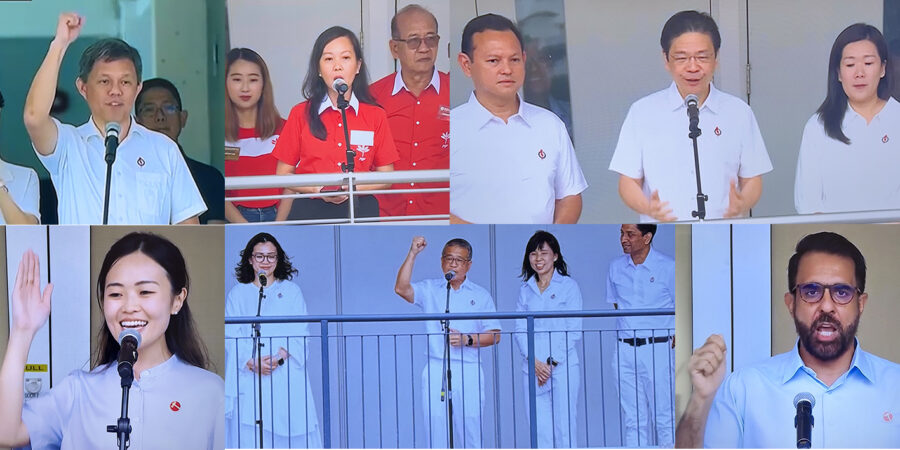
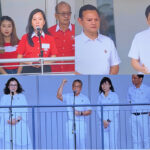
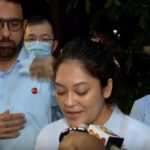
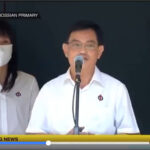

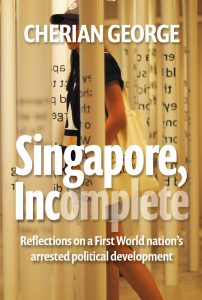
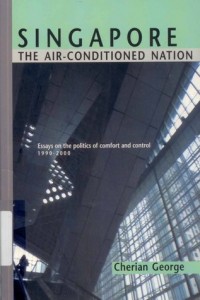
Comments are closed.